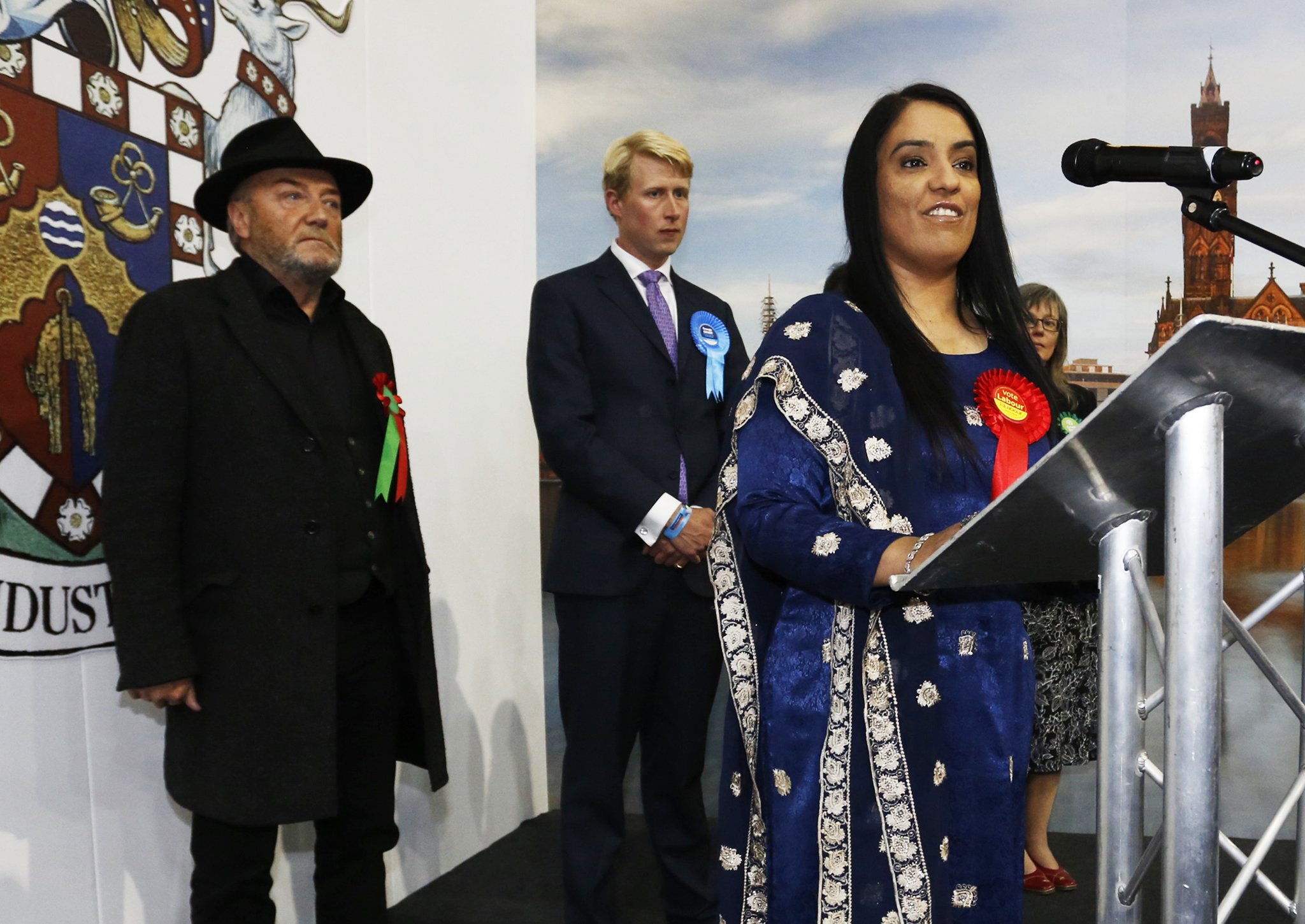Greater diversity is the only victory progressives can celebrate today
With more BME and female MPs than ever before, the make-up of our new parliament shows we’ve come a long way – although it's still nowhere near what it should be

Your support helps us to tell the story
From reproductive rights to climate change to Big Tech, The Independent is on the ground when the story is developing. Whether it's investigating the financials of Elon Musk's pro-Trump PAC or producing our latest documentary, 'The A Word', which shines a light on the American women fighting for reproductive rights, we know how important it is to parse out the facts from the messaging.
At such a critical moment in US history, we need reporters on the ground. Your donation allows us to keep sending journalists to speak to both sides of the story.
The Independent is trusted by Americans across the entire political spectrum. And unlike many other quality news outlets, we choose not to lock Americans out of our reporting and analysis with paywalls. We believe quality journalism should be available to everyone, paid for by those who can afford it.
Your support makes all the difference.As a left-wing person who works at a left-wing magazine and whose family and friends are mostly left-wing, it’s hard to find much solace in today’s result. The Tories are back for another five years.
There will be unspecified rafts of benefits cuts. There will be more sanctions, and quite possibly more deaths as a result. Scotland will no doubt try to leave the Union once again. These are the things which, quite rightly, will be occupying the minds of most progressives today and for the next 1,800 days.
But if you squint hard enough to blur party allegiances, it’s possible to see a bright spot among the clouds. The least progressive of our major parties is in majority government, yet parliament is closer to gender equality than ever before. There are now 188 female MPs, up nearly a third on the last parliament.
And for the first time in history, it’s no longer true that there are more male MPs than there have ever been female ones in the history of our parliament. There are now 460 male MPs, while 559 women have sat in the Commons overall. It is a tiny milestone: today’s result might just push us up to 38th place in the international women in parliament ranking. And at this rate, it will take us at least another 15 years to have gender parity in parliament. But both are still milestones.
Progressives can also take comfort in the fact that the number of black, and minority ethnic (BME) members of parliament has increased by 50 per cent since the last government, shooting up from 27 to 43. That’s still only 6.6 per cent of the house, compared to the 14 per cent of the UK population who are BME. But in 2005, we elected only 13. It’s a start.
In Bradford West, mental health campaigner Naz Shah, whose mother survived an abusive relationship and who has spoken out against forced marriages like her own, took the seat with a resounding landslide from Respect’s George Galloway (about whom the least said, the better). And Chuka Umunna’s massive victory in Streatham has consolidated his position as a hopeful for Labour party leadership. Solid figures on LGBTQ and disabled MPs aren't out yet, but we can hope a similar trend is at play there, too. If not, then there's a lot more work to be done next time round.
These small diversity victories are encouraging mainly because they might inch the door open to much bigger ones. Three white, middle class, yet undeniably female party leaders on TV debates this time round might just be the start, and pave the way for the real gender and racial diversity we need next time.
There are children growing up now who will imagine boring, suit-wearing men and women from different backgrounds when they think of the word “politician”. But now, it's possible that a much greater proportion of them will start to imagine themselves up there debating the deficit, because it’s starting to look like you don’t always need to be a posh, red-faced man to do it.
Beyond the push for even better representation next time round, there’s also undeniable advantages in a more diverse parliament in the here and now. Profit-driven companies have proven time and time again that a diverse workforce has better ideas, interacts with clients (or, you know, citizens) better, and is less likely to make mistakes borne of groupthink. This hasn’t escaped the corporate-obsessed Conservatives, who put forward a bigger pool of BME and LGBT candidates this year than most other parties.
So while this isn’t the government I want, something has still been achieved. And as Miliband, today’s great loser, put it in his resignation speech, the frustrating thing about change is that it’s measured in millimetres, and not always in the direction you want: “The course of progress and social justice is never simple or straightforward. Change happens because people don’t give up, they don’t take no for an answer, they keep demanding change.”
We moved a few millimetres forward today. Here’s to hundreds more.
Join our commenting forum
Join thought-provoking conversations, follow other Independent readers and see their replies
Comments